Nov 06

Help Us Protect Access to Sexual and Reproductive Health Care Today!
Newsletter/June 2016
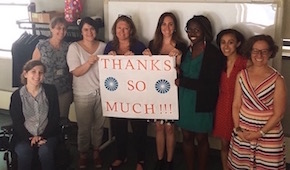
This spring, a generous supporter agreed to match all contributions made through May 31 dollar-for-dollar up to $10,000. The Reproductive Health Access Project (RHAP) is proud to say that we met this match! RHAP raised over $20,000 this spring!
The Reproductive Health Access Project (RHAP) is committed to increasing access to reproductive health care nationwide. By focusing on primary care clinicians and primary care health settings, RHAP is expanding reproductive health care in places where access to these services is limited or non-existent. We could not do this work without your support.
Bringing abortion, contraception, and miscarriage care into mainstream health care and developing strong advocates is a powerful way to ensure that reproductive health care is accessible to everyone. The funds we raised will help the Reproductive Health Access Project continue our work training and supporting primary care providers so they can integrate reproductive health care into their practices and better serve their patients.
We are so grateful to all our supporters. Thank you so much for your commitment to the Reproductive Health Access Project.
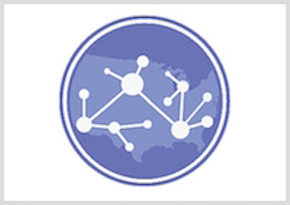
The past six months have been a busy time for the Reproductive Health Access Network! We hosted national gatherings at the National Abortion Federation (Austin, TX) and Society of Teachers of Family Medicine (Minneapolis, MN) annual conferences this spring. Each meeting brought together over 40 providers to discuss the current reproductive health climate and strategize ways we can work together to continue fighting the challenges to reproductive health care provision that we face regionally and nationally.
In 2015, the NYC-area Cluster decided to pilot a four-session expanded learning opportunity for residents and clinicians wanting to dive deeper into various reproductive health-related topics. Pulling from TEACH’s C.R.E.A.T.E curriculum, and led by experienced providers from within the Cluster, the sessions covered topics such as managing clinical complications, overcoming barriers to integrating reproductive health in primary care settings, developing clinical advocacy skills, and job negotiation for graduating residents. Offering these opportunities for extra-curricular learning is something the NYC Cluster hopes to continue doing this coming academic year. In early May, the Eastern Massachusetts/Boston Cluster also participated in an evening of skill building, covering similar topics. Over 40 local residents and clinicians from Massachusetts and Rhode Island attended, their biggest Cluster turnout yet!
The Mid-Atlantic Cluster in Baltimore has already met twice this year, most recently for a screening of After Tiller followed by a group discussion. In both Philadelphia and New Jersey, Cluster members came together for dinner to connect and discuss their work, sharing stories, insight, and wisdom from their unique experiences. If you are a clinician interested in doing something similar in your own reproductive health community, please reach out to our Program Manager, Laura Riker.
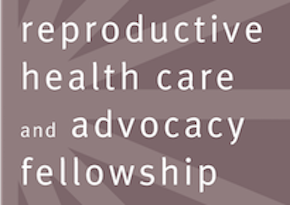
RHAP recently completed an evaluation of our Reproductive Health Care and Advocacy Fellowship. This one-year post-residency fellowship aims to develop clinical leaders who will promote and teach full-spectrum reproductive health care within family medicine. RHAP launched the fellowship in 2007 with one fellow in New York City. Over the years, the fellowship has expanded and this year we will train a total of six fellows, five in New York City and one in Boston, MA. In addition to developing strong reproductive health clinical skills, the fellows are trained as clinical teachers and advocates – areas that are not routinely covered during residency.
We want to further expand the fellowship, but wanted to evaluate it first so that we could build on its strengths. As part of our evaluation, former fellows completed an online survey and participated in structured interviews. We also interviewed the Fellowship Directors and collected patient visit data from the various fellowship training sites.
Most fellows (77.8%) are now involved in teaching reproductive health care to other providers. All of the fellows are providing comprehensive contraceptive care, including IUDs and implants. All fellows are providing expectant management for miscarriage, most (77.8%) are providing medication management for miscarriage, and more than half (55.6%) are providing uterine aspiration management for miscarriage. More than half of the fellows are providing medication abortion and uterine aspiration abortion (66.7% each).
When asked why they applied for the fellowship, almost all said that they wanted to gain additional expertise and more in-depth knowledge within the field of reproductive health, and to become a clinical advocate:
“In residency, you get an overview of everything but you don’t get in-depth knowledge. I was seeking more in-depth dedicated knowledge in this whole field.”
The fellows felt that the high-volume procedure training helped them feel competent in providing reproductive health care:
“The clinical experience is like one in a million. There are not any other fellowships that provide the numbers that we get in a family medicine fellowship.”
Several fellows noted that much of their fellowship experience was focused on teaching, and how this was the “next level” of expertise after learning how to perform procedures:
“But really, RHAP took me to the next level, where I felt very comfortable teaching other people how to do that.”
Fellows noted that becoming competent in providing reproductive health care does not necessarily mean that someone is then competent at teaching. Fellows saw teaching and providing as related, but separate, skill sets to be developed. Fellows also discussed how important it was that they had the Fellowship Directors there to guide them on how to teach others. The Fellowship Directors “trained the trainers,” and gave the fellows feedback on how to effectively teach others to provide reproductive health care.
Most fellows discussed their teaching experiences in their jobs after fellowship. Fellows described teaching as one of their main employment activities, and they taught a range of different learners, including medical students and residents. Several fellows also described how they expanded or improved the care provided at their post-fellowship positions:
“I did IUDs. I did family planning. I had to start from scratch. I had to order instruments. I had to order supplies. And bring all of those services into the primary care setting.”
Several fellows discussed advocacy activities that they participated in. These activities included writing letters to the editor about reproductive health topics, speaking at events, participating in Lobby Days, presenting at conferences, and participating in committees. The fellows also gave valuable feedback on how we can improve the fellowship experience for future RHAP fellows.
Evaluating our work is important so that we can improve our programs and expand our impact. We will be releasing a more detailed report on our findings in the next few months.
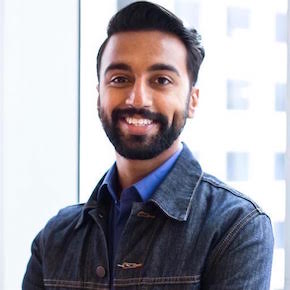
When Dr. Kumar was a child, he and his family moved to the United States from London. They moved first to Jackson, Mississippi and then finally to Texas where he spent most of his formative years. Seeing firsthand the lack of access to health care in this region of the United States inspired Dr. Kumar to pursue a career in medicine.
While attending medical school at Texas Tech, Dr. Kumar became active in their Medical Students for Choice chapter. He says, “Seeing the barriers to abortion in the south and specifically in Texas, I felt very strongly that something had to change. I knew that I wanted to be an abortion provider and that I could go one of two routes, OB/GYN or Family Medicine. Family care just made more sense and resonated more with how I felt that medicine should be practiced. It is full-spectrum care and a one-stop shop where I would be able to provide patients with all their medical needs, including abortion care.” Unfortunately, there were no family medicine residency programs in Texas that offered training in abortion care, so Dr. Kumar decided to head to NYC to train at Montefiore Medical Center.
After completing his residency and a family planning fellowship in New York, Dr. Kumar moved back to Texas to provide abortion care at Whole Woman’s Health. Dr. Kumar says, “I always knew there were more barriers to care in Texas, but until I got here and started providing care, I didn’t realize how different it was. The starkest difference is that in other states, as a provider, you can easily refer patients out if you encounter a potentially difficult situation. But in Texas, if I do not provide the care, my patients often will not be able to receive care elsewhere. This level of political intrusion creates a greater risk for the provider and the patient.”
With the passage of HB2, accessing abortion care has become even more difficult in Texas. The bill closed nearly half of all clinics in the state — but the same number of patients are still in need of care. Dr. Kumar says, “With this restricted access, patients now have to wait 2-3 weeks to even see a provider. If HB2 is upheld by the Supreme Court in the Whole Woman’s Health v. Hellerstedt case, only a handful clinics will remain open in the entire state of Texas. Logistically, we will not be able to serve all Texans who need care.”
It is a difficult time to be doing this work but Dr. Kumar says that his patients keep him motivated. “Texas is a big state and some of our patients travel hundreds of miles just to get to the clinic. They have to deal with waiting periods, find funds to pay for their procedure, and even take time off of work. As a provider, having to come to the clinic and walk past protestors is really so much less than what our patients go through, so it doesn’t seem so bad by comparison.”
In our current climate, choosing to become an abortion provider can seem like a very daunting career path, but Dr. Kumar says he can’t imagine doing anything else. He says, “…for those who are interested in providing abortion care in low-access or ‘hostile’ environments, I would recommend visiting one of our clinics and working with us for a week or even a couple days. Hearing the stories and seeing the patients allows you to really understand the need. You will see that it isn’t as scary as it can seem from the outside, and that the work is incredibly valuable and rewarding.”
We are so grateful to Dr. Kumar for being on the front lines in Texas and for providing this basic health care for people who might otherwise have no access at all!
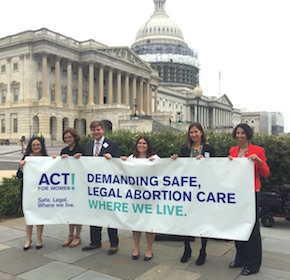
From May 11-12, 2016, RHAP fellow Dr. Martha Simmons traveled to Washington D.C. for the Act for Women’s 2016 Advocacy Day. Dr. Simmons joined health care providers and reproductive rights advocates from across the country to speak with legislators about the Women’s Health Protection Act. This federal bill would prevent states from imposing restrictions on abortion that do not exist for any other type of medical care, that interfere with a person’s individual decision-making about their health, and block access to safe and legal abortion care. This includes prohibiting TRAP laws.
Dr. Simmons was part of a contingent from New York State, speaking with staffers from Senator Kirsten Gillibrand’s office, and staffers from Representatives Tonko (NY Capital Region), Serrano (Bronx), Maloney (NYC), and Meng (Queens). “It was really great, because [the Women’s Health Protection Act] is an important piece of legislation that a lot of people don’t know about, so it was nice to go out and raise awareness of it. I think we were especially effective advocates because we were a multidisciplinary team.” Dr. Simmons was part of a team that included a trained lobbyist, a lawyer, a person representing the faith community, concerned citizens, and others.
“It was so important and meaningful to have a group with such different points of view coming together to talk to the legislators about how this issue has affected all of us in different ways.” Dr. Simmons was able to bring the provider perspective, sharing stories of patients affected by anti-abortion restrictions, including a patient who had to travel from North Carolina to New York because she had a fetal anomaly and was unable to access abortion in her home state. Another member of the group who was raised in New York shared how moving to another state for college made her realize she no longer had access to the same care that she’d had growing up. Dr. Simmons also noted that there was a large turnout of medical students from Medical Students for Choice. “As abortion providers get older, involving the next generation of students – who aren’t even doctors yet – in this work is so important for our future.”
Subscribe to receive monthly updates from the Reproductive Health Access Project.
Your gift allows us to train and support health care providers across the United States so they can offer patients compassionate and comprehensive care.
Nov 06
